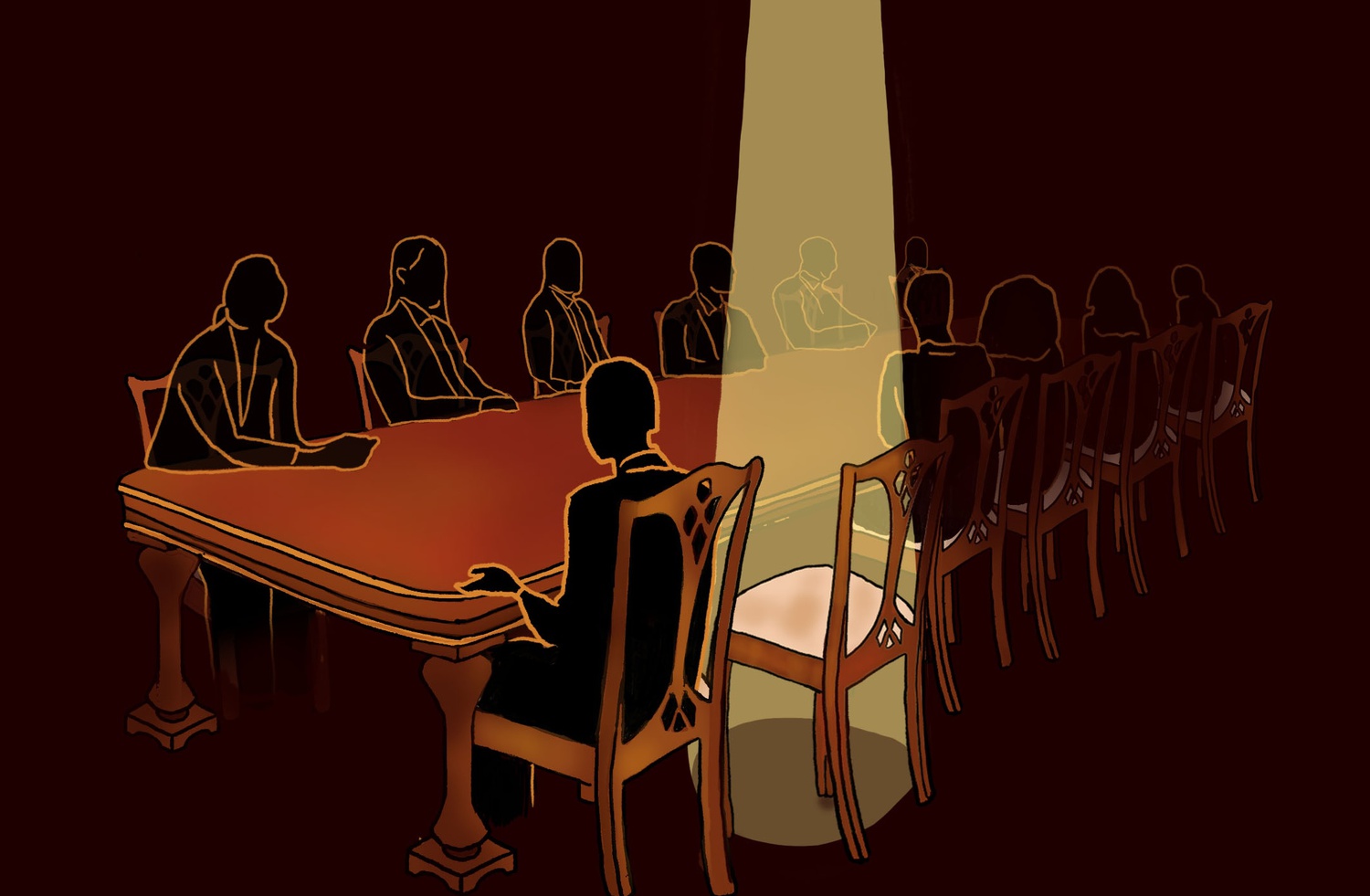
News
Pro-Palestine Encampment Represents First Major Test for Harvard President Alan Garber

News
Israeli PM Benjamin Netanyahu Condemns Antisemitism at U.S. Colleges Amid Encampment at Harvard

News
‘A Joke’: Nikole Hannah-Jones Says Harvard Should Spend More on Legacy of Slavery Initiative

News
Massachusetts ACLU Demands Harvard Reinstate PSC in Letter

News
LIVE UPDATES: Pro-Palestine Protesters Begin Encampment in Harvard Yard
Amid Crisis, Harvard Corporation Seat Goes 6 Months Unfilled

As Harvard faces its greatest leadership crisis in decades, the Harvard Corporation — the University’s highest governing body — is short one member.
The vacancy on the Corporation has gone unfilled for more than six months, even as the board is looking to mend relationships with alienated donors, embark upon a presidential search, and guide the University past a tumultuous period that saw the national spotlight fixated on a fractured campus.
David M. Rubenstein, a billionaire philanthropist, stepped down from the Corporation in June, after completing his first of two possible six-year terms on the board. Unlike some other recent departures from the Corporation, Rubenstein left the board without a successor in place.
The extended vacancy has left the Corporation with just 12 of its usual 13 members. And the board will soon have another vacancy when Paul J. Finnegan ’75 is forced to step down at the end of the academic year.
The search for Rubenstein’s replacement will likely conclude in the coming months or the Corporation will risk having two vacant seats.
When Rubenstein’s resignation was announced, former University President Lawrence S. Bacow, then-President-elect Claudine Gay, and Harvard Corporation Senior Fellow Penny S. Pritzker ’81 said a search for his successor will “begin soon,” an indication that the departure was unexpected.
The empty seat could not have come at a worse time for the Corporation. Gay’s resignation put the board under a microscope as external observers and Harvard affiliates alike have scrutinized, and often criticized, the Corporation’s role in the crisis.
The controversy surrounding Harvard over the past four months has raised the prospect that the Corporation might struggle to find acceptable candidates willing to join the board.
The Board of Overseers — the University’s second highest governing body — has seen a number of anti-establishment candidates run for election to reform the University and increase transparency within the administration.
Former Harvard President Lawrence H. Summers said in an interview that “after all the failures of the last semester, I would hope that this Corporation search will be very different in process and outcome than what has taken place recently.”
The next person to join the Corporation will likely help lead the high-pressure search for Harvard’s next president, a process led by a search committee composed of the 12 “Fellows” of the Corporation — as the members are formally known — and three Overseers.
It is unclear how the presidential search committee’s membership might change if the Corporation vacancy remains unfilled. The search to appoint Gay’s permanent successor, which has not been formally launched, is expected to begin soon.
New members are typically elected in early February to replace outgoing board members when their terms expire June 30. But since Harvard administrators announced Rubenstein’s plan to step down last May, no successor has been appointed.
The last time a vacancy was left unfilled – leaving the board with 12 members – was in 2019 when James W. Breyer also departed after one six-year term. The seat was filled a year later by current fellow Diana L. Nelson ’84.
Candidates for the Corporation are nominated and voted on by existing Fellows of the Corporation and the Harvard president before being finalized with the consent of the Overseers.
In the past, the Corporation has selected current and former members of the Board of Overseers, high-profile donors, and former university presidents to join their ranks.
—Staff writer Emma H. Haidar can be reached at emma.haidar@thecrimson.com. Follow her on X @HaidarEmma.
—Staff writer Cam E. Kettles can be reached at cam.kettles@thecrimson.com. Follow her on X @cam_kettles or on Threads @camkettles.
Want to keep up with breaking news? Subscribe to our email newsletter.
